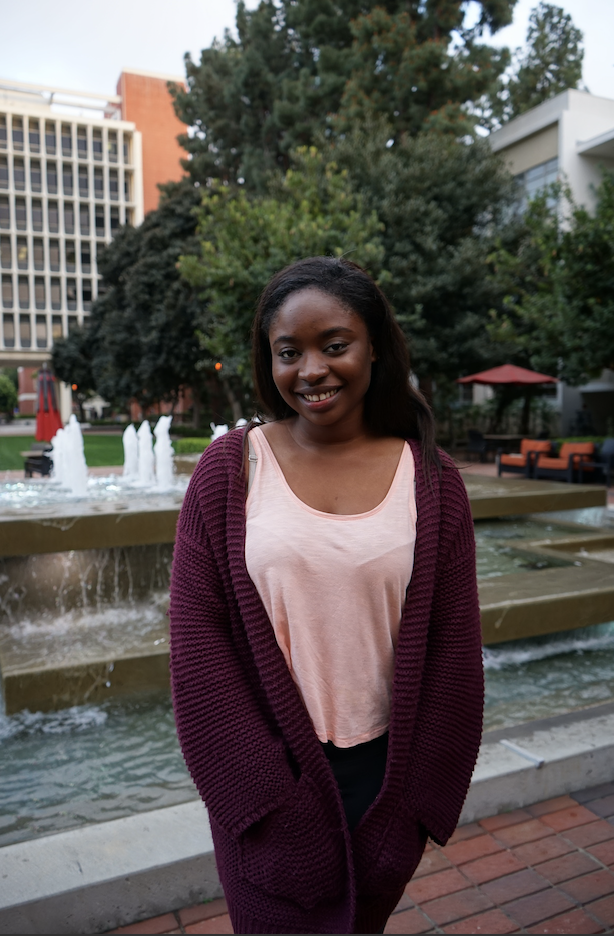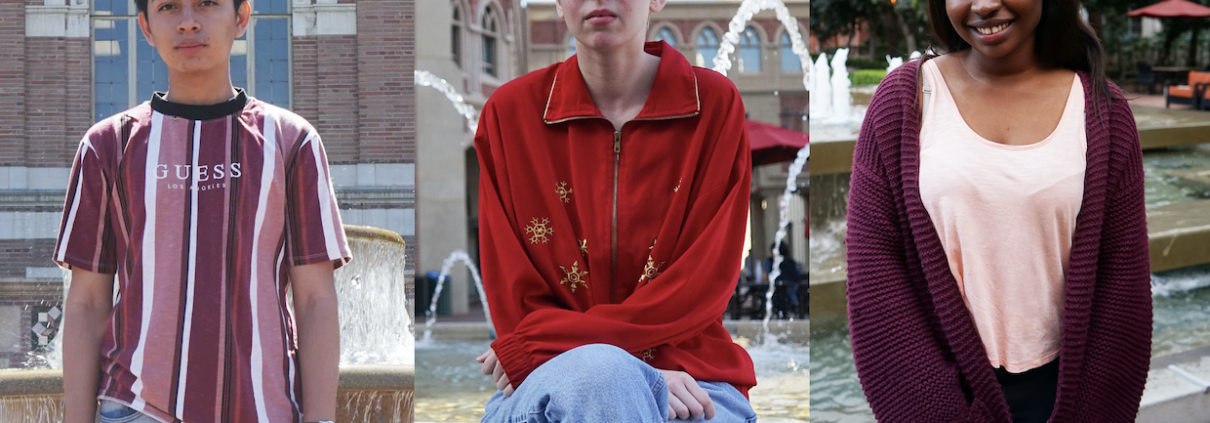What a USC student looks like
Admission decisions for USC’s Class of 2023 were mailed to students last week, barely a week after the University’s implication at the forefront of the largest college admissions bribery scandal in history. The investigation has placed national scrutiny onto the University, with many questioning the worth of a USC degree, especially in the wake of lawsuits and internal conflicts.
But chances of admission to USC have continued to dwindle. USC’s undergraduate applicant pool rose to a record 66,000 for the Class of 2023, according to a statement from the University.
15 percent of newly accepted students are the first in their families to attend college, and 29.5 percent are underrepresented minorities, according to the statement.
Multiple relatives of USC benefactors attend the school, including Board of Trustees Chairman Rick Caruso’s daughter. Andre “Dr. Dre” Young deleted an Instagram post congratulating his daughter for being accepted to USC “all on her own” following comments that pointed out his shared endowment of $70 million to the Jimmy Iovine and Andre Young Academy.
But beyond the select few whose names grace the buildings and benches around campus, USC’s student body includes students from all 50 states and over 130 countries, according to USC Admission’s website. Students at USC speak hundreds of languages and take classes across 80 majors. Some have disabilities, some work multiple jobs, some commute hours every day and some even have children.
Here are three of their stories.
Luis Tun

In addition to applying to 14 colleges and universities in his senior year of high school, Luis Tun had a schedule comprising advanced English, history and science courses, his family moved at least five times, and — to top it all off — he didn’t own a printer.
“A lot of low-income people don’t have access to a printer,” said Tun, a freshman majoring in political science. “Teachers would sometimes assume I [wasn’t] doing the work because there’s a certain perception that Latinos are part of gangs, or they don’t like school.”
Tun, who moved to Newbury Park, Calif., from the town of Muna in Yucatan, Mexico, when he was 6, is a recipient of the Norman Topping Scholarship, the only student-funded scholarship at USC for students from low-income backgrounds.
He said when he was first accepted to USC, he couldn’t believe it.
“It’s a first generation issue, where you don’t feel like you’re capable of being academically strong,” Tun said. “And I feel like there’s always a doubt that you’re not capable of doing what other students are.”
Tun said he had to learn about the college application process without the help of his parents. The academic barriers he faced in his community inspired him to educate others. He helped bring cultural sensitivity training programs to his high school, traveled around local schools to educate Latinx parents about the importance of higher education and advocated to lower the price of Advanced Placement testing in his district.
This inspired him to pursue a degree in political science at USC, although he was initially interested in medicine.
“As soon as I started doing more advocacy work within my community, that pushed me to do more law and policy-making,” Tun said.
Tun was recently selected to receive financial aid from the Fisher Fellowship Program, Dornsife’s first program for first-generation, low-income students.
Tun also qualifies for the Development, Relief, and Education for Alien Minors Act — making him a DREAMer — which he said prevents him from applying to certain scholarships. Tun said he also receives money from DREAM Cal Grants, which provide financial aid to students in California.
“It’s very difficult for me to apply for scholarships,” Tun said. “I always fit everything else — leadership, community service.”
V Marks

After coming to the School of Cinematic Arts, V Marks said USC’s “culture of wealth” surprised them.
“I feel like a lot of my experience at USC has been me learning how rich everyone I know is,” said Marks, a sophomore majoring in screenwriting.
Marks spent their elementary, middle and high school years at a selective public school in New York City whose elementary school had a 2 percent acceptance rate in 2015, according to Business Insider. However, they were still shocked to find out they had been accepted to the top film school in the country.
“It was one of the best days of my life,” Marks said. “The whole college admissions game is such a nonsensical process that you just never really know. I guess I just thought I wasn’t good enough to get in.”
This academic year, Marks is working as a resident assistant in Birnkrant Residential College, which provides them with free housing and meals in exchange for approximately 20 hours a week of supervising residents and performing other responsibilities within the residential college.
Marks is a member of Fourth Quarter All-Stars, a sketch comedy group on campus, as well as a writer for The Sack of Troy, USC’s satirical student newspaper. Last semester, they played the lead role of Alison Bechdel in Dorothy’s Friends Theatre Company’s production of “Fun Home,” an autobiography-turned-musical about Bechdel and her family.
As the first person in their family to attend a private institution for college, Marks said they feel the pressure to make their family proud.
“There’s this sense of [having to be] upwardly mobile every generation,” Marks said. “There’s definitely a sense of guilt whenever you don’t do well in something or you take free time for yourself.”
Marks said they are motivated by the sacrifices their family has made — all the way back to their ancestors, who escaped religious persecution in Russia in the late-19th century.
And while they said they weren’t surprised when they learned about the college admissions scandal, attending USC has taught them that privilege is a spectrum.
“There isn’t a solid line that divides rich and poor,” Marks said. “We still have some privilege just to go here. Does anyone ever really get into a school on their own merit? There’s so many factors that come into play.”
Saran Kaba

The middle sister of five, Saran Kaba always knew she would go to the United States to get a degree in chemical engineering. But it wasn’t easy — after her parents sent her two older sisters to college in the U.S., her father had to work 15 hours a day for nearly two years so that Saran could go to school.
“From the outside world … especially in Africa, just coming to the U.S. is such a privilege,” said Kaba, who considers herself Pan-African after growing up in multiple African countries.
Kaba, whose native language is French, transferred to USC after spending two years at Tarrant County College in Texas. She said she chose to first attend a smaller institution so that she could perfect her English and grow accustomed to living in the U.S.
Unlike her older sisters, Kaba was born in the U.S., so she qualifies for financial aid. She is currently a student worker at the Center for Interactive Smart Oilfield Technologies, and said that after graduating in May, she has a job lined up as a petroleum engineer in Nigeria.
She said her status as a citizen made her confident that she would be able to support herself after moving to the U.S. at the end of 2013.
“I was telling [my parents] … as soon as I step on the plane, I’m going to take care of myself,” Kaba said. “Within the first five months that I came to the U.S., I found my first job. I wasn’t speaking perfect English, but then I was like, ‘I’ll do whatever it takes.’”
Kaba said she received a grant from the Viterbi School of Engineering in addition to loans she took out to pay for school. After starting her job in Nigeria, she’ll be able to pay off her loans within a year.
A member of the National Society of Black Engineers, Kaba said she said she loves Viterbi and its faculty. But she said being a transfer student was a “rollercoaster” due to a lack of resources for students like her.
Kaba said the recent college admissions scandal disappointed her because she knows there are other students like her who weren’t accepted to USC.
“I grew up in a very corrupted country,” Kaba said, referring to her experience living in Guinea. “Coming to the U.S., [I thought I would] avoid this type of mentality. And being at the school where this kind of scandal happens, it saddens me.”
CORRECTION: An earlier version of this story misspelled Luis Tun’s name. The Daily Trojan regrets the error.

